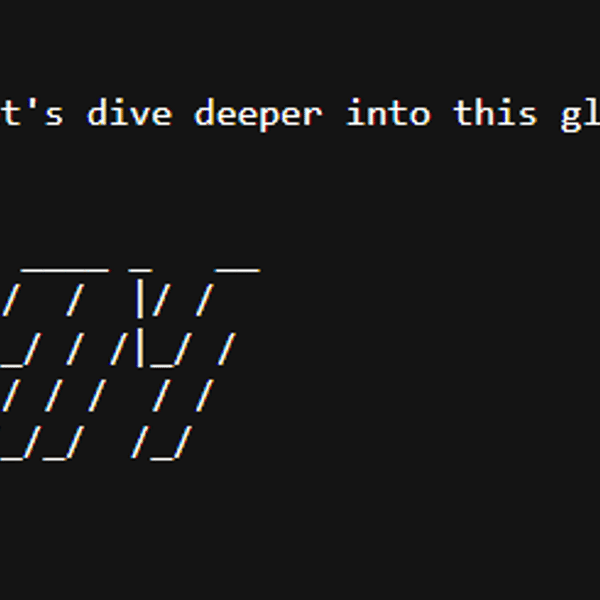Pi Network Customer Service: Maximizing User Support

Introduction to Pi Network Customer Service
Pi Network, an ambitious project in the cryptocurrency world, has attracted millions of users with its promise of accessible mobile mining and decentralized blockchain solutions. As the global user base expands, the role of Pi Network customer service becomes more critical than ever. Community members, both new and experienced, often require assistance with account issues, technical glitches, security concerns, and more. Outstanding customer service within Pi Network ecosystem ensures user satisfaction, encourages healthy community engagement, and helps foster a sense of security and trust in the rapidly evolving blockchain landscape.
This deep dive into Pi Network’s customer support system will help users understand how to seek help, what resources are available, and how to maximize their experience. Whether you struggle with KYC verification, app malfunctions, or wallet integration, knowing how to leverage customer service can be transformative.
Historical Background of Customer Service in Pi Network
The Early Years
When Pi Network launched its test phases, it relied primarily on social platforms such as official Telegram groups, Discord channels, and community-driven FAQs. Volunteers and early project ambassadors often acted as the first line of support, resolving basic issues and directing users to the right resources. This approach lay the foundation for a collaborative support network, but as the project’s popularity soared, so did the complexity and volume of inquiries.
Evolution with User Growth
As adoption reached the millions, the demand for more structured customer service escalated. The team responded by implementing in-app help sections, an extensive Frequently Asked Questions (FAQ) database, ticket-based support systems, and introducing dedicated staff to handle specific categories of problems such as KYC, mining app issues, and platform upgrades. These enhancements marked a shift from informal peer assistance to a more robust customer support operation focused on scalability and user trust.
The Community’s Role
Despite these improvements, Pi Network has continued to prioritize a community-centric support ethos. User-led forums, ambassador programs, and peer assistance groups remain integral, allowing members to share knowledge and solutions. This model not only lightens the workload for official staff but also nurtures a strong sense of ownership and mutual support among Pioneers.
Working Mechanism of Pi Network Customer Support
Pi Network’s support ecosystem comprises multiple channels designed to address a broad spectrum of user needs. Here’s a breakdown of how the mechanisms function:
1. In-App Help Center
The Pi Network app features an embedded help center, accessible from the main menu, where users can browse categorized topics. Common issues—such as login difficulties, transaction status, or KYC inquiries—are covered here, often with clear step-by-step solutions.
2. Support Ticket System
For more complex issues, the app allows users to submit a support ticket. Here’s the typical workflow:
- Describe the Problem: Users specify the issue category (e.g., account access, KYC, technical bug) and provide relevant details.
- Attach Evidence: For faster resolution, users may attach screenshots or transaction hashes.
- Response Time: The support team reviews and responds, typically prioritizing urgent or widespread problems.
3. Community Forums and Social Channels
Official and community-run forums continue to serve as valuable resources. Users often find that their questions have already been addressed by peers, saving time and reducing reliance on direct staff support.
4. Ambassador and Moderator Assistance
Pi Network’s ambassador program allows experienced users to guide newcomers, providing both technical advice and community guidelines enforcement. Moderators are equipped to handle disputes, enforce rules, and relay unresolved technical issues to the core support team.
5. Security-Focused Support
Given the financial stakes, Pi Network has implemented additional mechanisms for reporting suspicious activity, account compromise, or phishing attempts. Users are encouraged to report such incidents promptly, triggering an immediate review by specialized staff.
Benefits and Advantages of Robust User Support
Pi Network’s multi-channel customer service infrastructure delivers distinct advantages that set it apart in the crowded crypto space:
- User Empowerment and Confidence
Quick access to reliable support helps users resolve issues independently, empowering them to interact with the ecosystem confidently. Knowing help is available promotes greater platform usage and engagement.
- Trust Building
Transparent, timely support fosters trust. When technical issues or scams arise, responsive customer service reassures users that the platform is proactive and accountable.
- Community Cohesion
By encouraging peer aid and decentralizing some support functions, Pi Network strengthens community bonds. Users not only become more self-reliant but also more invested in the platform’s progress.
- Efficient Scaling
A hybrid model of automated/self-help systems and human support means the network can handle exponential user growth without sacrificing support quality.
- Proactive Security Measures
The focus on security in customer service, including rapid threat response channels, helps protect user assets and ecosystem integrity.
Additional Tips for Effective Support Experiences
If you’re a Pi Network user looking to make the most of customer service, consider these best practices:
1. Consult FAQs and Guides
Before submitting a ticket, thoroughly explore available documentation. Many common problems—especially regarding app navigation or KYC—have step-by-step guides that can resolve your issue instantly.
2. Provide Clear, Detailed Descriptions
When submitting a support request, include all relevant details: the nature of the problem, error messages, screenshots, device information, and actions you’ve already tried. Detailed requests get resolved faster.
3. Utilize Community Wisdom
Join official Pi chat groups or forums. Often, veteran users or ambassadors have quick solutions or tips based on their own experiences.
4. Protect Your Security
Never share sensitive information like passwords or private keys, even with support staff. Instead, use secure, recommended tools like the Bitget Wallet for managing your assets safely in the web3 universe.
5. Escalate, Don’t Duplicate
If you don’t get a response to your support ticket in a reasonable time, consider following up or escalating the matter via Pi’s official channels. However, avoid submitting multiple duplicate tickets for the same issue, as this can slow down the process.
6. Stay Updated
Pi Network frequently releases updates and advisory notes about new features, potential bugs, or scheduled maintenance. Staying informed can help you anticipate (and avoid) common issues.
A Look Towards the Future of Support in Pi Network
As Pi Network transitions toward broader mainnet adoption, its customer service apparatus is poised to become even more sophisticated. Integration of AI-driven chatbots, expanded language support, deeper in-app troubleshooting tools, and enhanced partnerships with wallets like Bitget Wallet are on the horizon. With these improvements, Pi Network aims to offer seamless, friendly, and efficient customer care—an essential pillar for any credible blockchain project.
For users seeking reliable, security-conscious support as they traverse the expanding realm of mobile crypto mining and decentralized finance, understanding these mechanisms isn’t just helpful—it’s essential. And while Pi Network’s mission is user empowerment, remember that your most powerful ally in the journey is both the wisdom of the global community and the ever-evolving customer care infrastructure striving to keep you safe, informed, and connected to the future of finance.
Want to get cryptocurrency instantly?
Latest articles
See moreAbout author
I'm Blockchain Nomad, an explorer navigating the crypto world and cross-cultural contexts. Fluent in English and Arabic, I can analyze the underlying protocols of Bitcoin and Layer 2 scaling solutions in English, while also interpreting the latest blockchain policies in the Middle East and the integration of Islamic finance with cryptocurrencies in Arabic. Having worked on building a blockchain-based supply chain platform in Dubai and studied global DAO governance models in London, I aim to showcase the dynamic interplay of blockchain ecosystems across the East and West through bilingual content.






















